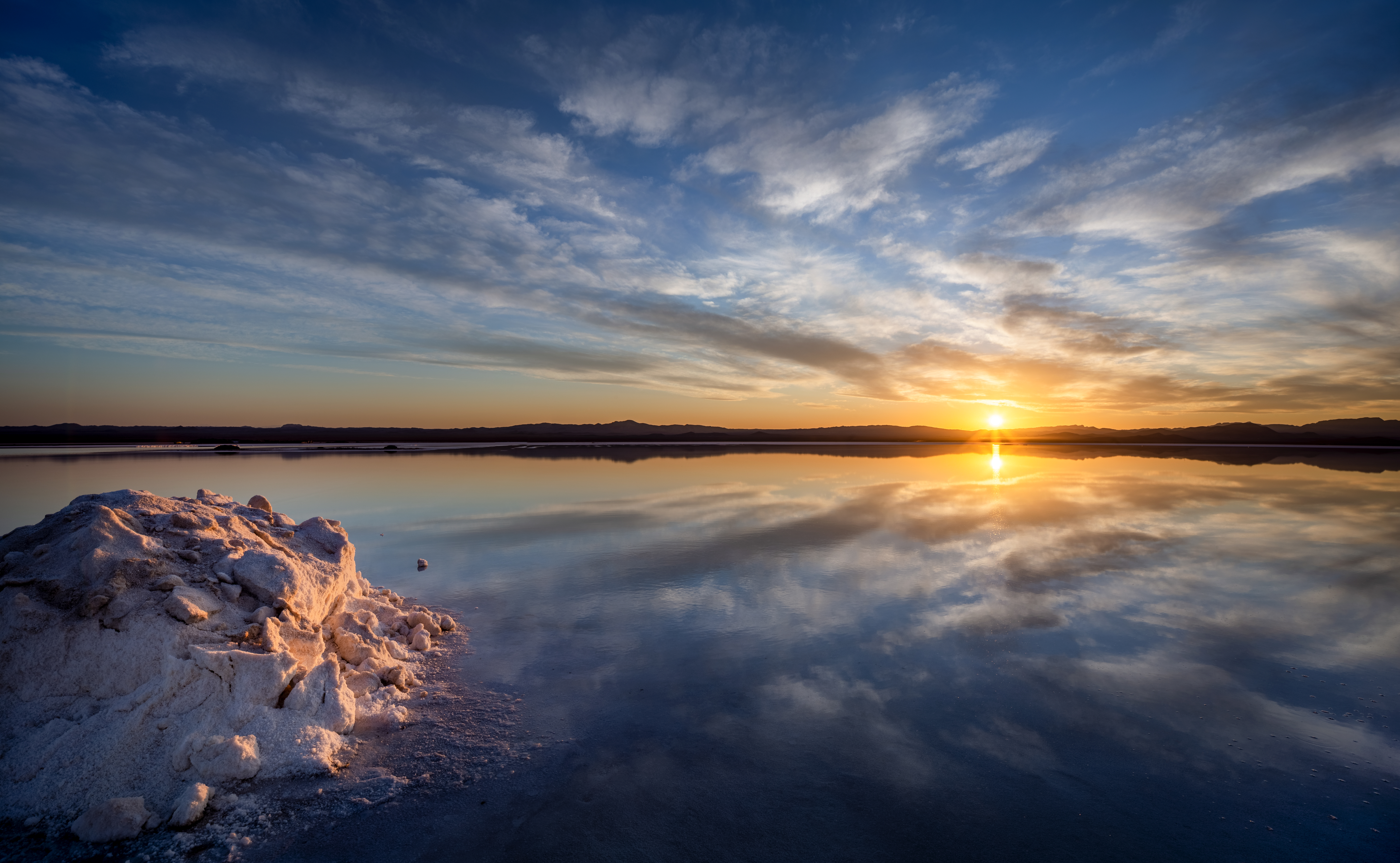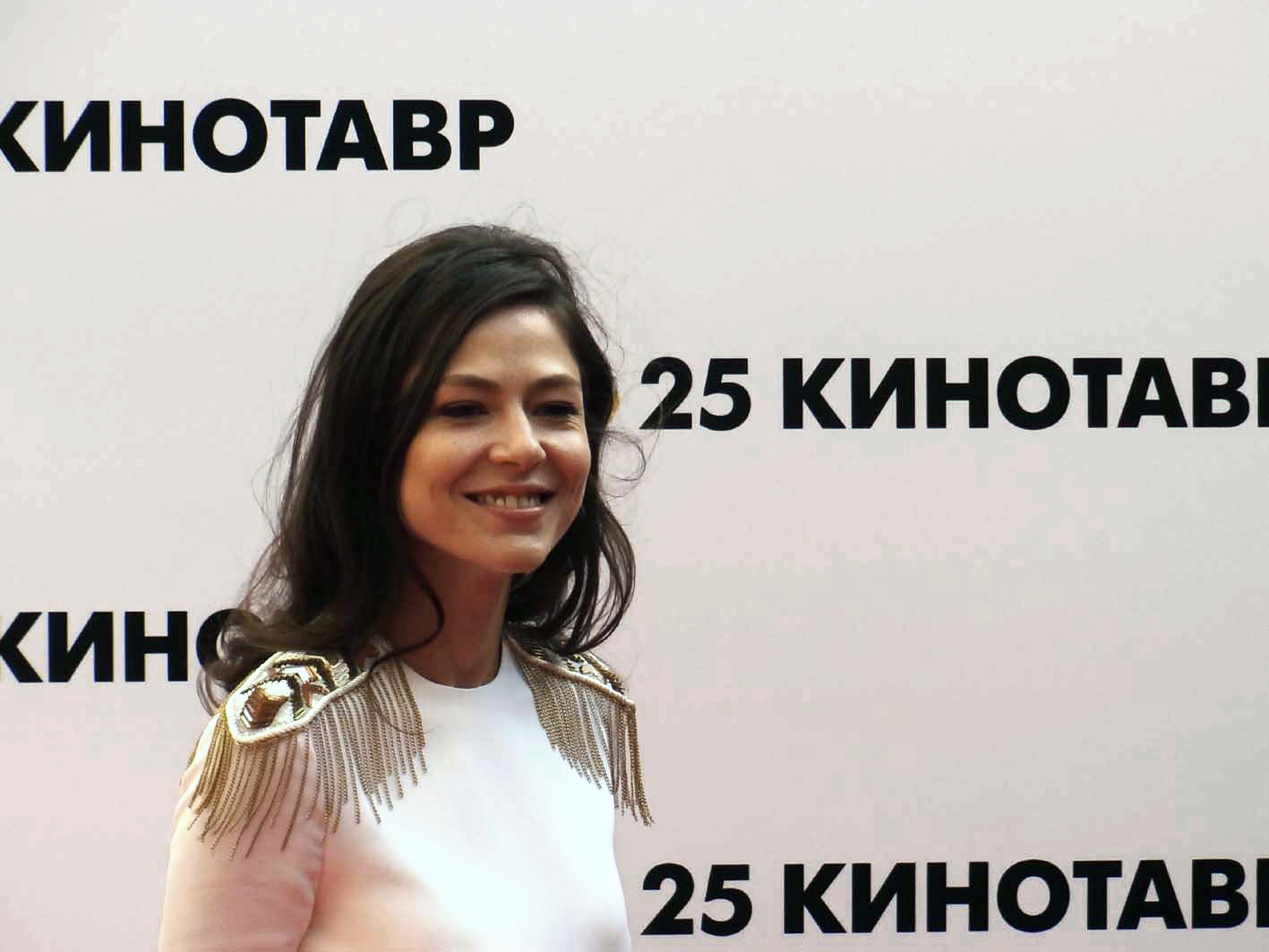|
Orlean (film)
''Orlean'' (russian: Орлеан) is a 2015 Russian film directed by Andrey Proshkin, screenplay by Yuri Arabov. The film participated in the competition program of the XXXVII Moscow International Film Festival. For her starring role, Elena Lyadova was awarded the prize Silver George for Best Actress. Plot The small town of Orlean, located on the shores of the salt lake in the Altai steppe. In the hospital room where after yet another abortion the local beauty Lidka lies, appears a strange gentleman who identifies himself as Pavlyuchek, executioner. His questions drive Lidka to hysterics and she runs for help to her friend surgeon Rudik. In a changed appearance the clerk appears in the apartment of Rudik, where lies his paralyzed father in a bad condition. Cast * Elena Lyadova as Lidka * Oleg Yagodin as Rudik * Vitaly Khaev as Nevolin * Viktor Sukhorukov as Executioner * Timofey Tribuntsev as Borya Amaretto * Pavel Tabakov as Igor Criticism *The Hollywood Reporter: In ... [...More Info...] [...Related Items...] OR: [Wikipedia] [Google] [Baidu] |
Yuri Arabov
Yuri Nikolaevich Arabov (russian: Юрий Николаевич Арабов) (born 25 October 1954) is a Russian screenwriter, writer, poet and educator. He is known for his long-lasting collaboration with Alexander Sokurov. He is an Honored Artist of the Russian Federation (1999). Biography Yuri Arabov was born in Moscow into a mixed Russian-Greek family. His parents met in Tula, Russia, the native town of his father, but divorced in five years after Yuri's birth. He was raised by his mother, who belonged to the Greek diaspora of Crimea. In 1937 she moved to Moscow to study directing at VGIK under Sergei Eisenstein, and later worked at the Gorky Film Studio as an assistant director and a dubbing director. [...More Info...] [...Related Items...] OR: [Wikipedia] [Google] [Baidu] |
2015 Films
2015 in film is an overview of events, including the highest-grossing films, award ceremonies, festivals, and a list of films released and notable deaths. Evaluation of the year Richard Brody of ''The New Yorker'' described 2015 as, "one of Hollywood's worst years" but also stated that it was also "a terrific year for movies over all". He emphasized that, "The anticipated Oscarizables have mainly ranged from the blandly enjoyable to the droningly disastrous. Partly, the problem is merely one of scheduling: most of Hollywood's inspired directors, the ones whose images have a natural musical sublimity and complexity, weren't on call this year. My list reflects the unfortunate accident of a calendar year with no release by many of the best American directors working in or out of the Hollywood system, such as Martin Scorsese, Sofia Coppola, Wes Anderson, Miranda July, Terrence Malick, James Gray, David Fincher, Steven Soderbergh, and Paul Thomas Anderson." Highest-grossing films ... [...More Info...] [...Related Items...] OR: [Wikipedia] [Google] [Baidu] |
Ogoniok
''Ogoniok'' ( rus, Огонёк, t=Spark, p=ɐɡɐˈnʲɵk, a=Ru-огонёк.ogg; pre-reform orthography: ''Огонекъ'') was one of the oldest weekly illustrated magazines in Russia. History and profile ''Ogoniok'' has issued since . It was re-established in the Soviet Union in 1923 by Mikhail Koltsov. The headquarters is in Moscow. In 1957 the circulation of the magazine was 850,000 copies. The colour magazine reached the pinnacle of its popularity in the Perestroika years, when its editor-in-chief Vitaly Korotich "was guiding ''Ogoniok'' to a pro-American and pro-capitalist position". Those years are the subject matter of the book ''Small Fires: Letters From the Soviet People to Ogonyok Magazine 1987-1990'' (Summit Books, New York, 1990) selected and edited by Christopher Cerf, Marina Albee, and with an introduction by Korotich. The magazine sold 1.5 million copies in 1987 and 4.6 million copies in 1990. In the early 1990s, ''Ogoniok'' was owned by Boris Berezovsky ... [...More Info...] [...Related Items...] OR: [Wikipedia] [Google] [Baidu] |
Afisha
''Afisha'' ''( rus, link=no, Афиша — "Poster")'' was a Russian entertainment and lifestyle magazine published from April 1999 to December 2015 in Moscow, Saint Petersburg and 12 other Russia's major cities. In its peak years ''Afisha'''s readership reached approximately 1.5 million people. Its online version remains one of Russia’s most popular media brands with a monthly Internet audience of more than 4.5 million. History Founded in April 1999 by Moscow journalist Ilya Oskolkov-Tsentsiper, American entrepreneur Andrew Paulson and businessman Anton Kudryashov ''Afisha'' was intended as Moscow's version of Time Out which Oskolkov-Tsentsiper and Paulson tried and failed to license. It quickly outgrew its initial purpose as a bi-weekly listing magazine and ended up having a profound effect on Moscow’s cultural and nightlife scene. In the next 10 years Afisha turned into a Russia's leading publishing house by launching an array of spin-off publications such as monthly trav ... [...More Info...] [...Related Items...] OR: [Wikipedia] [Google] [Baidu] |
The Hollywood Reporter
''The Hollywood Reporter'' (''THR'') is an American digital and print magazine which focuses on the Cinema of the United States, Hollywood film industry, film, television, and entertainment industries. It was founded in 1930 as a daily trade paper, and in 2010 switched to a weekly Wide-format printer, large-format print magazine with a revamped website. As of 2020, the day-to-day operations of the company are handled by Penske Media Corporation through a joint venture with Eldridge Industries. History Early years; 1930–1987 ''The Hollywood Reporter'' was founded in 1930 by William R. Wilkerson, William R. "Billy" Wilkerson (1890–1962) as Hollywood's first daily entertainment trade newspaper. The first edition appeared on September 3, 1930, and featured Wilkerson's front-page "Tradeviews" column, which became influential. The newspaper appeared Monday-to-Saturday for the first 10 years, except for a brief period, then Monday-to-Friday from 1940. Wilkerson used caustic articles ... [...More Info...] [...Related Items...] OR: [Wikipedia] [Google] [Baidu] |
Abortion
Abortion is the termination of a pregnancy by removal or expulsion of an embryo or fetus. An abortion that occurs without intervention is known as a miscarriage or "spontaneous abortion"; these occur in approximately 30% to 40% of pregnancies. When deliberate steps are taken to end a pregnancy, it is called an induced abortion, or less frequently "induced miscarriage". The unmodified word ''abortion'' generally refers to an induced abortion. The reasons why women have abortions are diverse and vary across the world. Reasons include maternal health, an inability to afford a child, domestic violence, lack of support, feeling they are too young, wishing to complete education or advance a career, and not being able or willing to raise a child conceived as a result of rape or incest. When properly done, induced abortion is one of the safest procedures in medicine. In the United States, the risk of maternal mortality is 14 times lower after induced abortion than after chi ... [...More Info...] [...Related Items...] OR: [Wikipedia] [Google] [Baidu] |
Salt Lake
A salt lake or saline lake is a landlocked body of water that has a concentration of salts (typically sodium chloride) and other dissolved minerals significantly higher than most lakes (often defined as at least three grams of salt per litre). In some cases, salt lakes have a higher concentration of salt than sea water; such lakes can also be termed hypersaline lakes, and may also be pink lakes on account of their colour. An alkalic salt lake that has a high content of carbonate is sometimes termed a soda lake. One saline lake classification differentiates between: *subsaline: 0.5–3‰ (0.05-0.3%) *hyposaline: 3–20‰ (0.3-2%) *mesosaline: 20–50‰ (2-5%) *hypersaline: greater than 50‰ (5%) Properties Salt lakes form when the water flowing into the lake, containing salt or minerals, cannot leave because the lake is endorheic (terminal). The water then evaporates, leaving behind any dissolved salts and thus increasing its salinity, making a salt lake an excellent place ... [...More Info...] [...Related Items...] OR: [Wikipedia] [Google] [Baidu] |
Elena Lyadova
Elena Igorevna Lyadova (russian: Еле́на И́горевна Ля́дова; born 25 December 1980) is a Russian actress. In 2002, she graduated from Mikhail Shchepkin Higher Theatre School in Moscow, Russia. Her film credits include ''Elena'' (2011), ''The Geographer Drank His Globe Away'' (2013), ''Leviathan'' (2014) and '' Orlean'' (2015). Biography Elena Lyadova was born in on 25 December 1980 in Morshansk, Tambov Oblast. When Elena turned six, the family moved to Odintsovo, Moscow Oblast. She graduated from the Higher Theatre School named after MS Shchepkin in 2002 and was accepted into the troupe of the Moscow Theatre for Young Audiences. Career Lyadova's career in cinema began in 2005, with the Golden George winning film ''Dreaming of Space'' by Alexei Uchitel. In 2005, she had roles in Ekaterina Shagalova's melodrama ''Pavlov's Dog'' and in Andrei Proshkin's comedy ''Soldier's Decameron''. Elena acted in the 2009, television series ''The Brothers Karamazov'' by Y ... [...More Info...] [...Related Items...] OR: [Wikipedia] [Google] [Baidu] |
Orlean, Altai Krai
Orlean (russian: Орлеан) is a rural locality (a selo) and the administrative center of Orleansky Selsoviet, Blagoveshchensky District, Altai Krai, Russia Russia (, , ), or the Russian Federation, is a List of transcontinental countries, transcontinental country spanning Eastern Europe and North Asia, Northern Asia. It is the List of countries and dependencies by area, largest country in the .... The population was 525 as of 2013. There are 4 streets. Geography Orlean is located 30 km southwest of Blagoveshchenka (the district's administrative centre) by road. Yagotino is the nearest rural locality. References Rural localities in Blagoveshchensky District, Altai Krai {{BlagoveshchenskyALT-geo-stub ... [...More Info...] [...Related Items...] OR: [Wikipedia] [Google] [Baidu] |
Moscow International Film Festival
The Moscow International Film Festival (russian: Моско́вский междунаро́дный кинофестива́ль, translit. ''Moskóvskiy myezhdunaródniy kinofyestivál''; abbreviated as MIFF) is the film festival first held in Moscow in 1935 and became regular since 1959. From its inception to 1959 it was held every second year in July, alternating with the Karlovy Vary festival. The festival has been held annually since 1999. In reaction to the 2022 Russian invasion of Ukraine, the FIAPF (Fédération Internationale des Associations de Producteurs de Films, translated as the International Federation of Film Producers Associations) paused the accreditation of the festival until further notice. The festival's top prize is the statue of Saint George slaying the dragon, as represented on the Coat of Arms of Moscow. Nikita Mikhalkov has been the festival's president since 2000. Over the years the Stanislavsky Award—"I Believe. Konstantin Stanislavsky" for ... [...More Info...] [...Related Items...] OR: [Wikipedia] [Google] [Baidu] |


